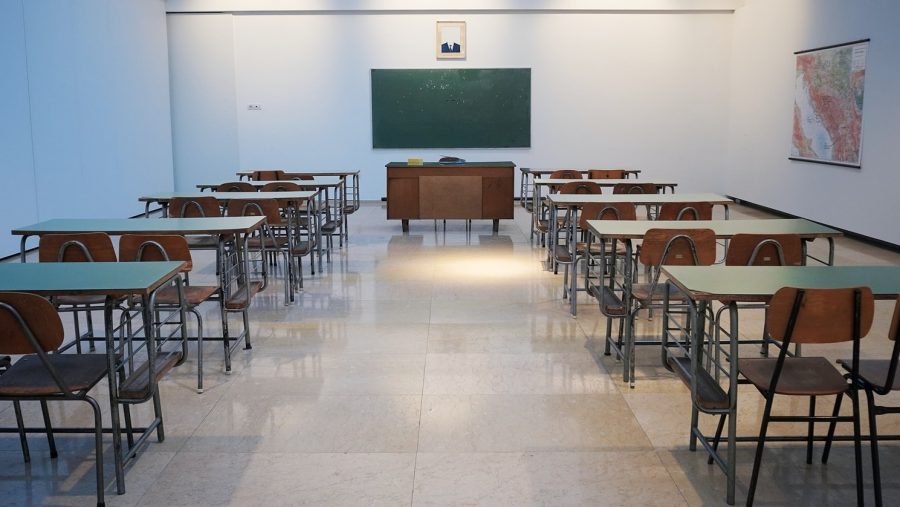AP’s = Overrated?
Are AP Classes Too Much For High School Students?
As students enter the AP testing season, last minute studying and stress piles up on top of a heavy end of the year workload. Some may question if all this stress is worth what AP classes and exams put students through. In reality, AP classes are more than the one point GPA bump. Recent Oakton graduate Alina Galaria elaborates, saying “I think a lot of colleges do take the GPA [bump] into consideration, that’s good when they do that, [because] then it makes you look better, but at the same time some colleges kind of just strip your GPA boost away, they take your [unweighted] GPA.” Directed by the College Board, AP classes and exams are conducted and designed in order to give high school students the opportunity to experience college level courses in preparation for the intense years of college. High school students can even benefit from a high score on the AP exam as students may receive college credit that can save money and course slots in college. However, there are positives and negatives to these courses.
Q: What do you believe these classes accomplish for a student’s academic future?
A: “In terms of your academic future, studying itself is a skill. I think that you would be able to learn that through AP classes in high school. It makes it a lot easier for you in the future, it will help you get to that next stage in life because, not necessarily that you have to take a lot of AP classes to do well or get into a good college, but definitely taking a few AP classes helps boost your transcript for college, if you can do well in them” (Alina Galaria).
Along with these positives, there are various reasons as to why AP classes can be very time consuming and overwhelming. Not only are these classes at a higher level of academics, these classes take up much more time than a normal grade level course would.
Q: Are there any negatives to take away from AP courses?
A: “I do think that they can be really helpful to prepare you for college, I think that sometimes people take too many of them, and they think that you need to take, five AP’s or something crazy like that to do well, so I feel like with a lot of these AP classes combined, they can be very stressful because there definitely is a lot of work, so I think just one or two AP classes or even three will help you” (Alina Galaria)
AP classes require students to be more proactive with their own work, whereas grade level classes may not require as much outside of school work hours. “I would say it has a positive effect on you in college, AP classes compared to other high school classes are more work, more studying, but at the same time that’s something that prepares you for college” (Alina Galaria). Although this does prepare students for college as students can learn effective study skills that will help them for future classes, the workload, study requirements, and time management of AP exam studying can be daunting. Especially as students enter the mindset of studying for the AP exam, the amount of stress that builds up can be tiresome, and can even discourage students from other coursework. Some students tend to spend numerous hours on multiple AP courses that are overwhelming, but how much is too much? Taking as many AP courses as a student can is not the answer. However, if students do not perform as well as they intended to, it’s not the end of the world, because as some students may not understand, no one sees the score unless the student wants certain colleges to know. It is important to understand that the overall grade in AP classes is far more important than the score that is received from the AP exam.
Q: Would you recommend taking an AP course to high school students, and why?
A: “The number of AP courses totally varies and the type of AP course varies too depending on what you’re interested in, but I feel like I would definitely say that you should take a course because one, it’ll help you in high school but also it’ll kind of make you more competitive for college too because then colleges see that you have taken the time and the effort to actually pursue something that you are more interested in and I think it definitely helps you look better, helps you learn how to study better too” (Alina Galaria).
It’s mostly a win-win: a grade boost as long as a student does well in the class, and a potential chance for college credit. Even if the student was not able to earn college credit, the student loses nothing. Generally, these classes are not overrated because the courses only end positively as long as the student puts in the right amount of effort.
Q: Would you say AP classes have had an overall negative or positive affect on your academic achievement through college, and why?
A: “I feel like if you didn’t take any AP classes in highschool and then you go straight into college without that kind of [buffer] that the transition is harder cause you’re just not as used to, the workload of the class, the amount of studying, also the idea that you have to self study more for AP classes: that’s definitely something that you have to do in college classes” (Alina Galaria).
AP courses are a perfect chance for high school students to experience college level courses and prepare strategies to cope with college challenges in the future. No matter the decision of a high school student, it is important to understand what a student may be missing out on if they don’t take an AP course. The reality of students is to think that they can’t handle it, or that busy schedules and balancing out course loads should be taken into consideration. While that is true, with the thought of college in mind, colleges like to see that students challenged themselves throughout high school. Taking AP courses are the perfect opportunity to showcase abilities that students learned from AP courses, and how they can use those abilities to pursue their highest potential. There is nothing to lose, so why not try?

I am a Senior this year at Oakton and this is my third year on the Oakton Outlook. I am super excited to be one of the Editors-in-Chief this year! I love...






